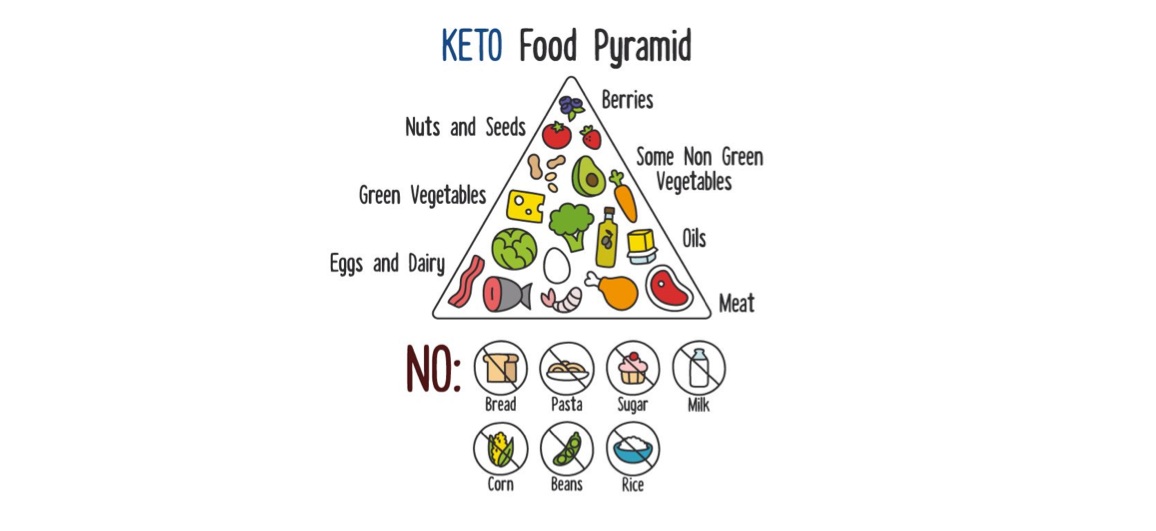Humans are evolutionary adapted to use any of the macro nutrients (fats, proteins, carbohydrates) for energy.
Ketosis is a metabolic state
in which your body uses stored fat rather than carbohydrates as your main energy source.
Ketogenic
diets are being used not only for weight loss but also as a tool for metabolic
healing. This is because ketosis
· Takes the reliance off the adrenals for blood sugar regulation ( therefore benefits those with blood sugar/ insulin resistance problems) 1
· Resets leptin, the hormone that controls appetite and also energy expenditure, so helps to regulate energy balance, which is important to support healing
· Aids weight loss. Ketogenic diets can yield greater weight loss over medium carbohydrate diets 2, 3 and low fat, medium carb diets 4,5. This is because eating excess refined carbohydrates leads to fat storage. High natural healthy fat intake leads to fat loss
· Promotes fat cycling, rather than storage, can also encourage elimination of any fat soluble toxins stored in your fat cells6
· Originally designed to offset excitatory brain agitation in epilepsy, ketosis calms the neural activity and is also being used for Alzheimers, Parkinson, migraines and other neural degenerative diseases 7
· Ketones are anti inflammatory so drive down any other inflammation to allow healing and this is being investigated for reducing cancer tumours7,8,9
However! , there
are however pitfalls and this needs to be entered with caution and guidelines so
you don’t do yourself more harm than good. This includes
- Getting the right balance of nutrients with a high fat, moderate protein and low carbohydrates
- Guidance for transition into ketosis as unguided this can be stressful on the body
- Making sure you are not in ketosis long term as this can downregulate your metabolism
- Consideration of adaptations of the ketogenic diet for those undertaking cardio/ aerobic/ athletic training
I had a
step change in my own health when following a guided ketogenic diet. If you are
interested in trying a guided ketogenic diet to help your health then please feel
free to get in touch .
1. Effect of a low-carbohydrate diet on appetite, blood glucose levels, and insulin resistance in obese patients with type 2 diabetes. Boden G, Sargrad K, Homko C, Mozzoli M, Stein TP. Ann Intern Med. 2005 Mar 15;142(6):403-11.
2. Effects of a high-protein ketogenic diet on hunger, appetite, and weight loss in obese men feeding ad libitum. Johnstone AM, Horgan GW, Murison SD, Bremner DM, Lobley GE. Am J Clin Nutr. 2008 Jan;87(1):44-55.
3. Body composition and hormonal responses to a carbohydrate-restricted diet. Volek JS, Sharman MJ, Love DM, Avery NG, Gómez AL, Scheett TP, Kraemer WJ. Metabolism. 2002 Jul;51(7):864-70.
4. Twelve-month outcomes of a randomized trial of a moderate-carbohydrate versus very low-carbohydrate diet in overweight adults with type 2 diabetes mellitus or prediabetes. Saslow LR, Daubenmier JJ, Moskowitz JT, Kim S, Murphy EJ, Phinney SD, Ploutz-Snyder R, Goldman V, Cox RM, Mason AE, Moran P, Hecht FM. Nutr Diabetes. 2017 Dec 21;7(12):304.
5. A randomized trial comparing a very low carbohydrate diet and a calorie-restricted low fat diet on body weight and cardiovascular risk factors in healthy women. Brehm BJ, Seeley RJ, Daniels SR, D'Alessio DA. J Clin Endocrinol Metab. 2003 Apr;88(4):1617-23.
6. Fats that heal and Fats that Kill , Udo Erasmus, Alive books, 1993
7. Potential for diet to prevent and remediate cognitive deficits in neurological disorders. Francis HM, Stevenson RJ. Nutr Rev. 2018 Jan 15. doi: 10.1093/nutrit/nux073. [Epub ahead of print]
8. Obesity and tumor growth: inflammation, immunity, and the role of a ketogenic diet.Wright C1, Simone NL. Current Opinion in Clinical Nutrition & Metabolic Care: July 2016 - Volume 19 - Issue 4 - p 294–299
9. The calorically restricted ketogenic diet, an effective alternative therapy for malignant brain cancer. Zhou W, Mukherjee P, Kiebish MA, Markis WT, Mantis JG, Seyfried TN. Nutr Metab (Lond). 2007 Feb 21;4:5.

